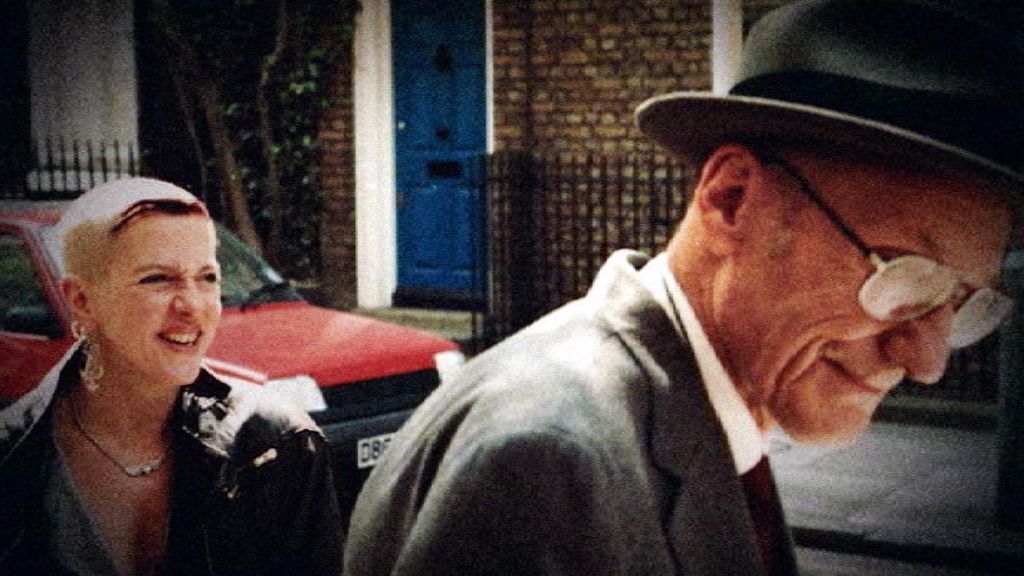
Yony Leyser’s first feature documentary William S. Burroughs: A Man Within is screening at film festivals all over Europe right now and coming back to the United States for more dates this spring. The film makes its broadcast debut on Independent Lens this Tuesday, February 22, 2011. We sat down with Yony, the two-time film school dropout to find out how he managed to make such an intimate film about a man he never met, and who died before Yony was old enough to drive.
What impact do you hope this film will have?
I hope this film will introduce Burroughs and his contemporaries to a younger generation. It’s important for people to see the confidence he had in breaking away from society’s written and unwritten laws. I would love to see more people critiquing control systems, defying regulations and format, and approaching the world with a truly open mind.
What led you to make this film?
My interest in Burroughs and the Beats began when I was in high school and having difficulty with authority. I picked up his book Naked Lunch, and was shocked to learn that a book that broke so far away from anything I had ever read, and was written in the 1950s! Burroughs is a fascinating subject because he contributed so much to society, yet was such a deeply conflicted person. When I was 19, I was kicked out of film school for a controversial art piece that criticized the dean of students. I decided to move to Lawrence, Kansas,where Burroughs lived longer than anywhere else in his adult life and begin the film.
What were some of the challenges you faced in making this film?
I don’t know where the bravado came from. I didn’t have a lot of money or connections in the film world; I didn’t have a film degree and I had been kicked out of every school I had ever been to; and I was 20!
I was lucky enough to have been given a camera from a school friend. Friends helped out with camera operation, editing, etc. I got to my interviews by hopping in band’s tour vans and ride shares. Once I proved myself, support came in. I guess the challenge was in finding creative ways of getting this film made.
How did you gain the trust of the subjects in your film?
I started interviewing Burroughs’s friends and academics that could guide me. I gathered a strong foundation of information, and developed my interviewing technique. His friends and poets Charlie Plymell, Diane DiPrima and Anne Waldman (all active in the Beat Generation) helped me validate my project with interviews, information, and introductions. People like John Waters and Thurston Moore were supremely influenced by Burroughs and were excited to have the opportunity to speak about him, a break from discussing their own work. When it came to the estate of William Burroughs, which is run by James Grauerholz, I had to prove myself. When I approached him the first time, I was 20 and had little documentary experience. He was skeptical that I could handle such a hefty project. Slowly, however, he saw that I was able to get great interviews, and I compile a nice rough cut. He then lent his full support and we quickly became friends.
What would you have liked to include in your film that didn’t make the cut?
Even more archival footage! Luckily, today we have access to cheap and convenient cameras — which wasn’t the case in Burroughs’s generation. The home footage I found is great; I just wish there were even more!
Tell us about a scene in the film that especially moved or resonated with you.
The chapter on Burroughs’s Queer still moves me. I love watching him and Andy Warhol and Allen Ginsberg talk about sex.
What has the audience response been so far? Have the people featured in the film seen it, and if so, what did they think?
So far people love it — though I am sure it is going to stir up some controversy; any good film does. Victor Bockris did the Q&A with me in Sarasota and was brought to tears. John Waters and Gus Van Sant both came to a screening and really enjoyed it. James Grauerholz, the executor of the estate, helped organize a special screening and Q&A in Lawrence, Kansas. Lee Ranaldo (from Sonic Youth) enjoyed it and gave his time to help with the soundtrack.
Any updates on what some of the people in the film are up to now?
John Waters just completed his book Role Models. Victor Bockris is finishing a book on Andy Warhol. Patti Smith released a documentary on PBS called Dream of Life, in which she mentions William Burroughs. James Grauerholz and Berry Miles are working on the definitive biography of Burroughs. Jose Ferez, who provided many of the photos unfortunately passed away. Marcus Ewart is writing a memoir. Diane DiPrima became the Poet Laureate of San Francisco. Everyone is staying active.
The independent film business is tough. What keeps you motivated?
Watching great documentaries made by inspired people.
Why did you choose to present your film on public television?
Public television reaches out to anyone with access to a TV, who wants to watch, which I think is great. I’m all for public media networks.
What didn’t you get done when you were making your film?
Work on my photo book, tentatively titled Daily Life Sucks, which I am working on now.
What are your three favorite films?
Impossible to answer. Three great films I have watched recently l that I think people should see are Blood Relation, I Killed My Mother, and The Weather Underground
What advice do you have for aspiring filmmakers?
Pace yourself.
What do you eat when you need inspiration on location?
Falafel.
